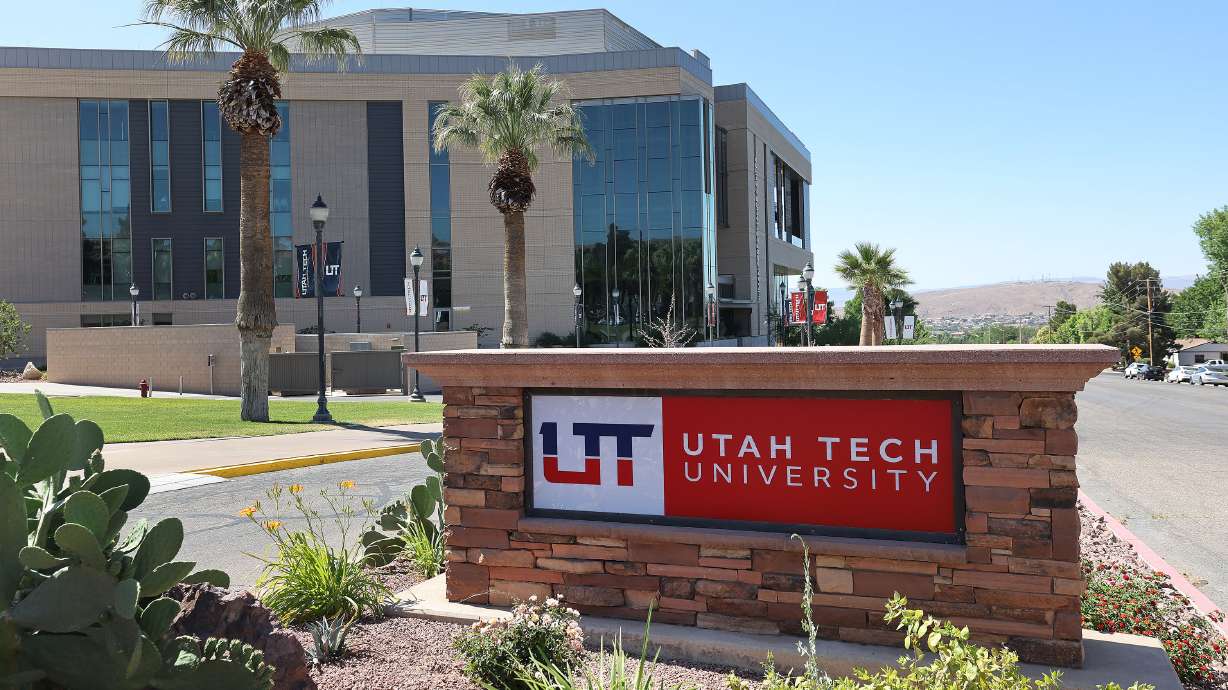Estimated read time: 3-4 minutes
This archived news story is available only for your personal, non-commercial use. Information in the story may be outdated or superseded by additional information. Reading or replaying the story in its archived form does not constitute a republication of the story.
ST. GEORGE — Continuing to bolster its polytechnic approach to education, Utah Tech University has been selected to participate in a pilot launch of the Sandbox entrepreneurship program.
The program will allow business, engineering and design students to engage in an 18-credit-hour capstone program to go toward launching a fully functioning tech company, under the guidance of experienced mentors and industry experts.
"It's spread across two semesters, and they (students) form teams of two or four and launch startups. All of the startups are software," said Chris Crittenden, who founded Sandbox three years ago at Brigham Young University. "We've had eight companies get venture backed at a combined valuation of over $60 million."
He said he sees Sandbox as the "world's best preparation" for a career in tech, adding that students who enter the tech workforce have about 25% higher starting salaries than comparable peers.
Enrolled students will attend class just twice a week, giving them the freedom to dedicate more time to launching their startups.
Unlike traditional startup incubators, Sandbox does not take any equity in exchange for its support. The program is funded solely by Utah Tech University and student-paid course fees.
"I think the valuable part of Sandbox is giving students real experience," said Sam Clarke, assistant professor of entrepreneurship at Utah Tech. "What Sandbox does for us is allows students to be put in the real economy solving real problems, and not just reaping, maybe, real benefits, but also being able to make a difference. It changes the incentive structure of college a little bit in the sense that you're making a real difference in your communities in which you live."
Utah Tech's motto is "active learning, active life," said Aaron Davis, associate dean of Utah Tech's College of Science, Engineering and Technology, adding the Sandbox program perfectly encapsulates that.
"This is the definition of polytechnic. It is applied, it's job-ready skills, it's taking knowledge and doing something practical with it," Davis said. "(Students) will have access to our expert mentor network, backdoor job opportunities with our preferred hiring partners, and the chance to pitch their startup to real investors at demo day."
Other Utah higher education institutions that harness the Sandbox program include BYU, Utah State University and Utah Valley University.
"You look at the long-term repercussions of a program like this, you're going to see, in 20 years, new companies starting up that got their start at Sandbox now, in 2024," Davis said.
This is the definition of polytechnic. It is applied, it's job-ready skills, it's taking knowledge and doing something practical with it.
–Aaron Davis, Utah Tech's College of Science, Engineering and Technology
The program will also be an important addition to the ever-growing city of St. George and its tech sector.
"We need entrepreneurship. We need new companies to be launched. And so, this platform not only just benefits the students but it gives us an opportunity to put new opportunities into community, and hopefully high-paying opportunities for our community members," Clarke said. "I think there's a big societal impact and something that's definitely needed in St. George. As we transition from a snowbird-type community into, you know, a robust economy, we need these startups to fill in the gaps."
More information about Sandbox and how to apply can be found at sandbox.ing.
"Sandbox is for anyone, but it's not for everyone," Crittenden said. "It all depends on how much you want it. We invite students to seize this opportunity and embark on a transformative journey towards entrepreneurship."










